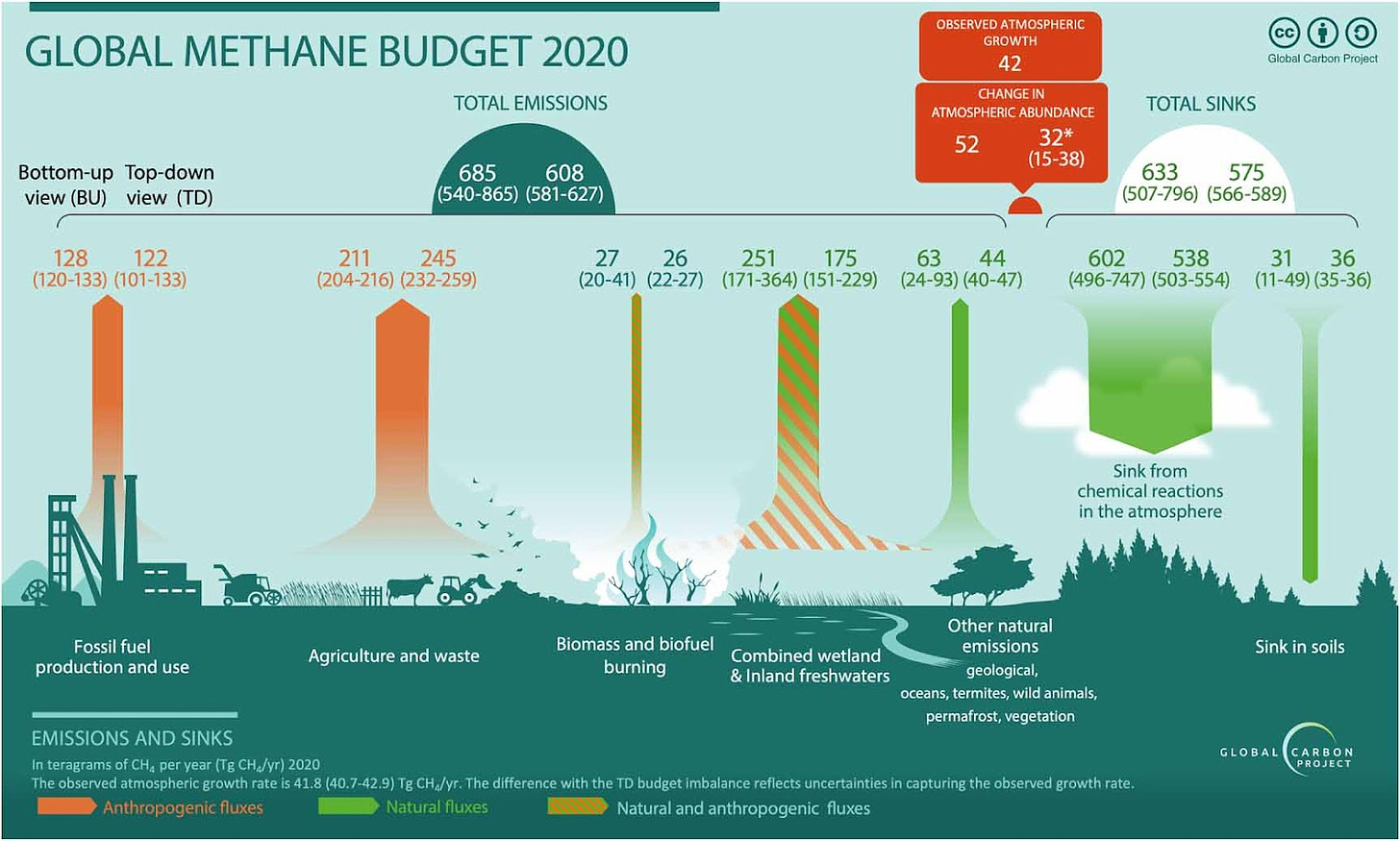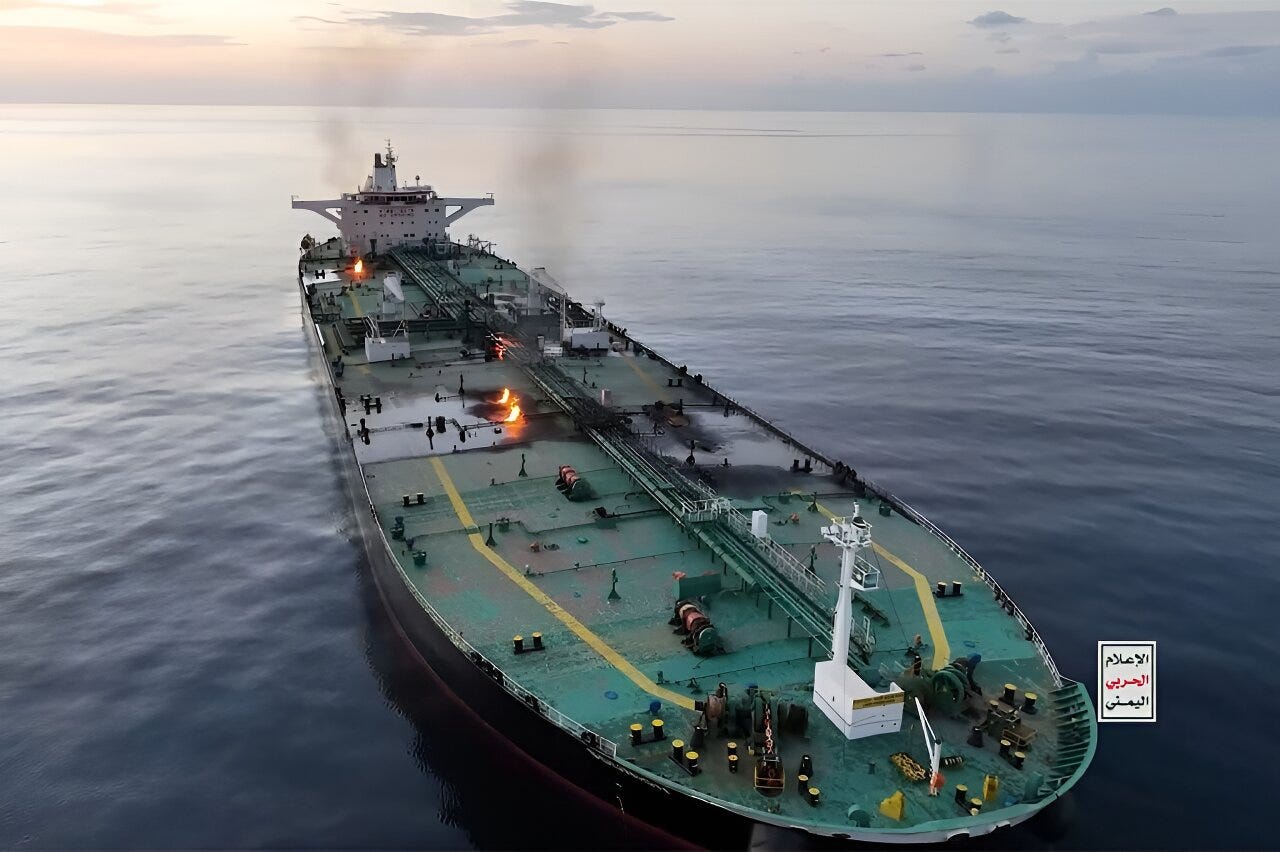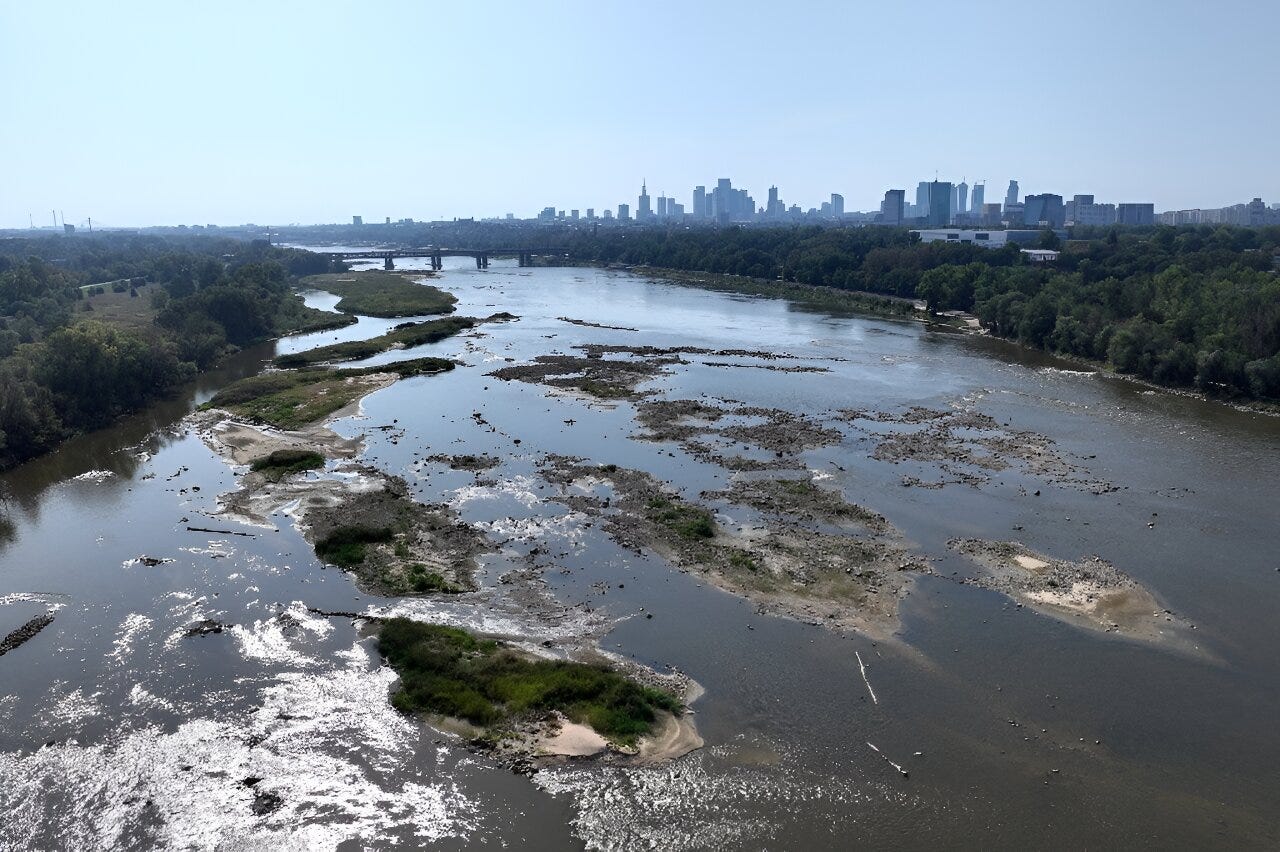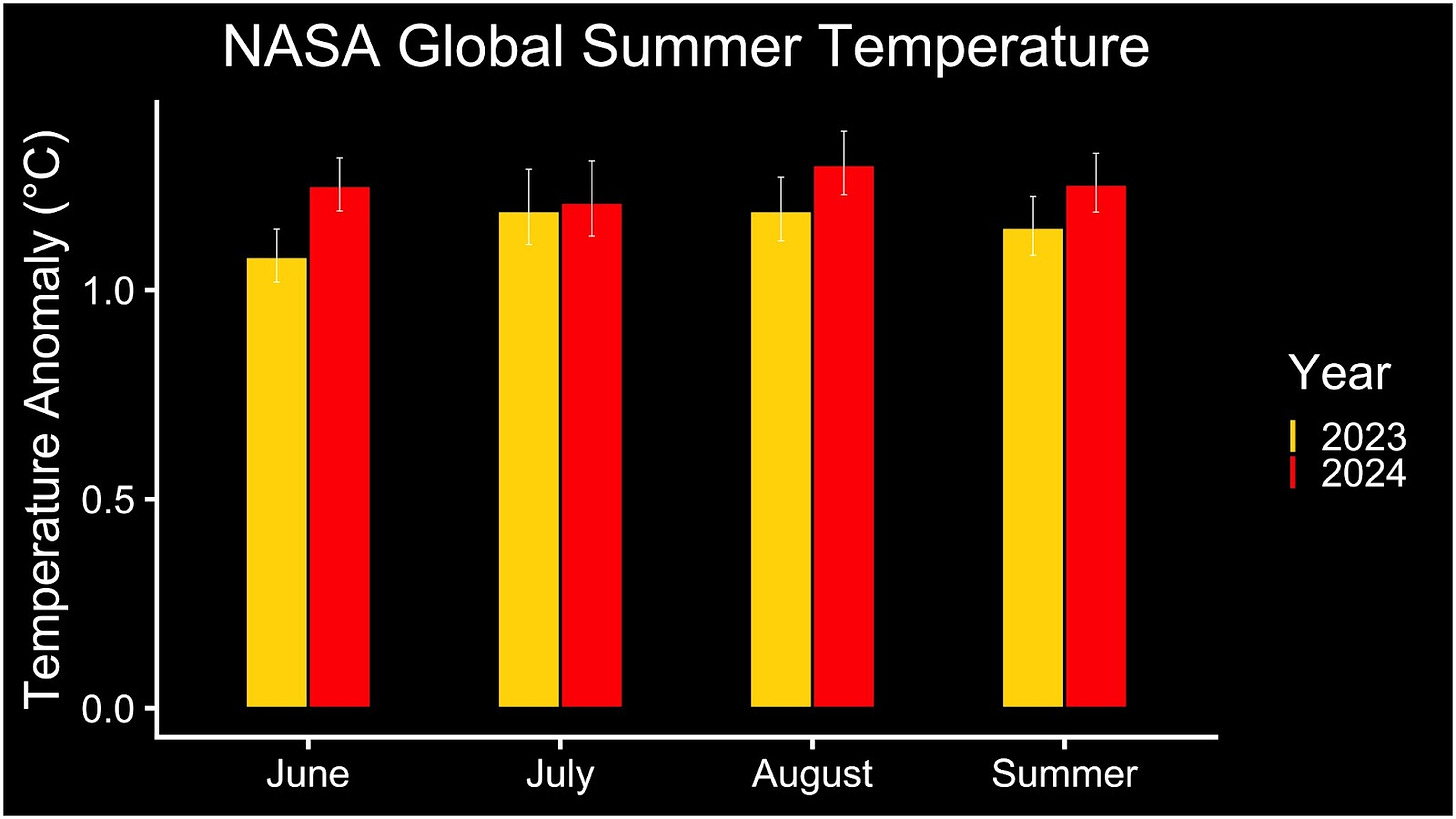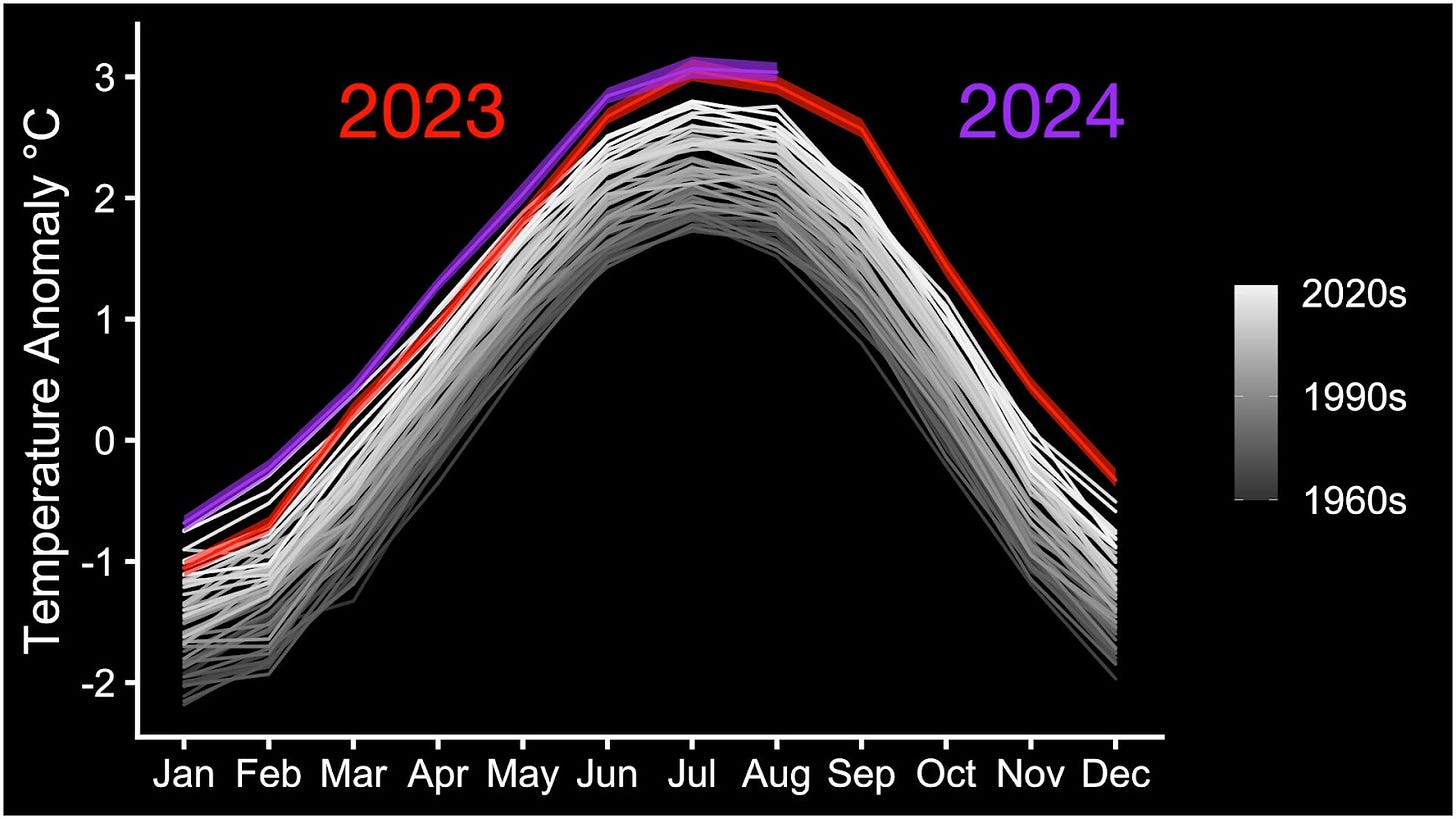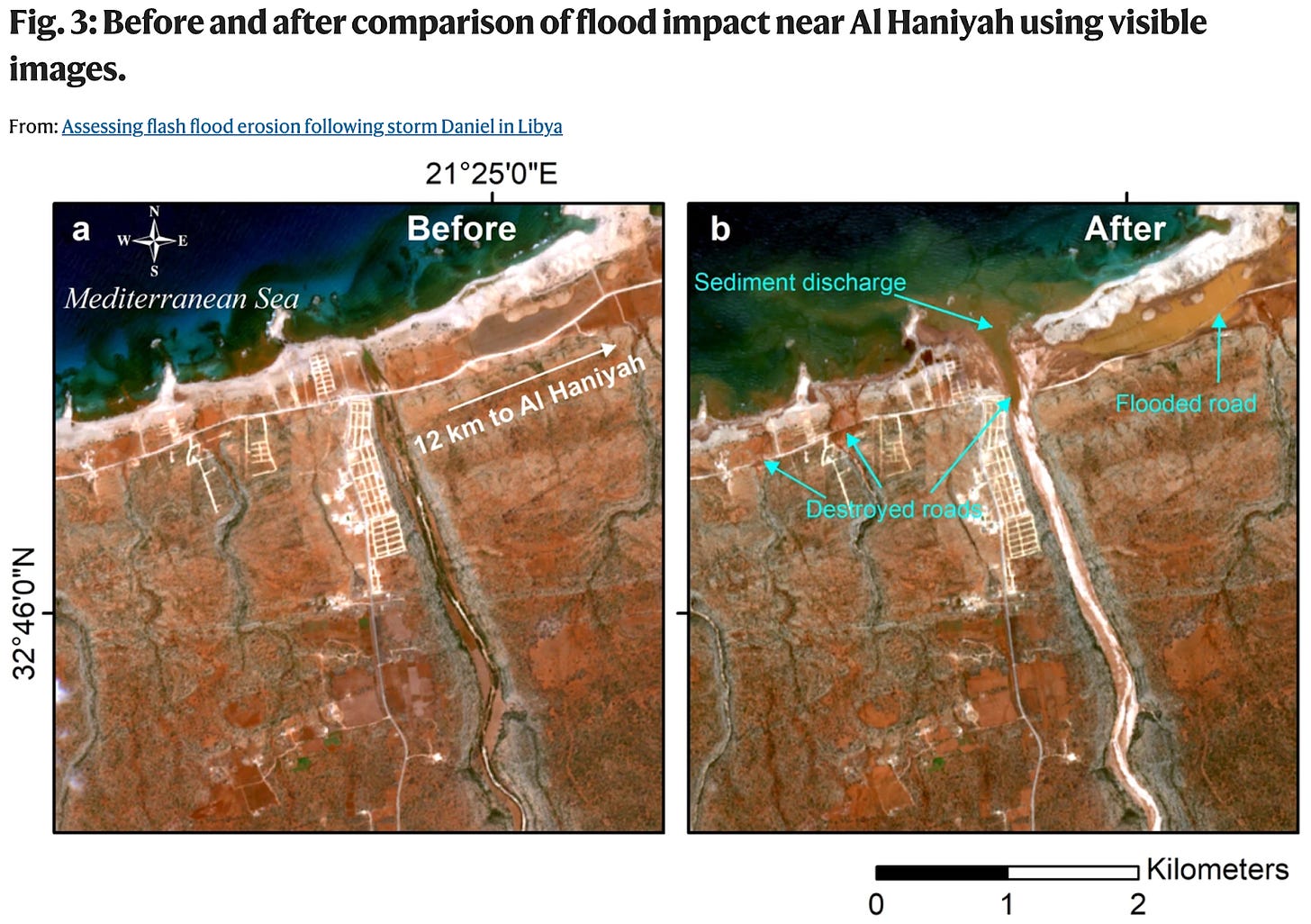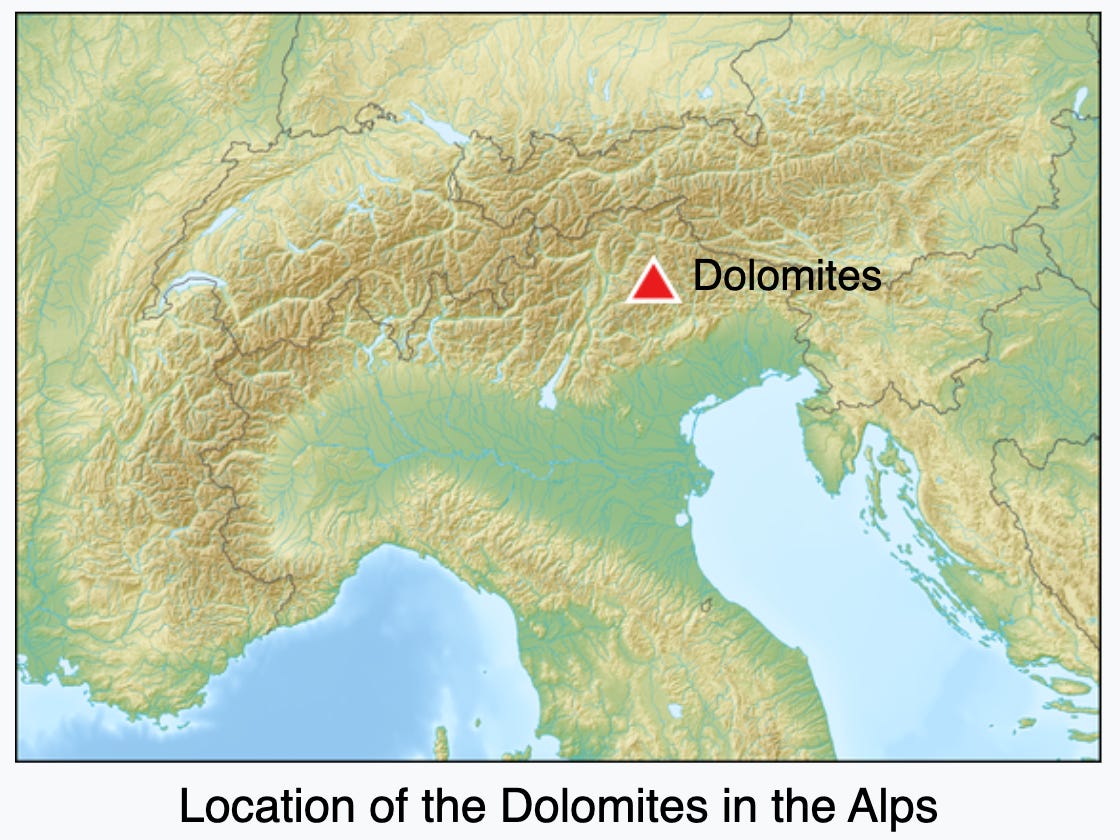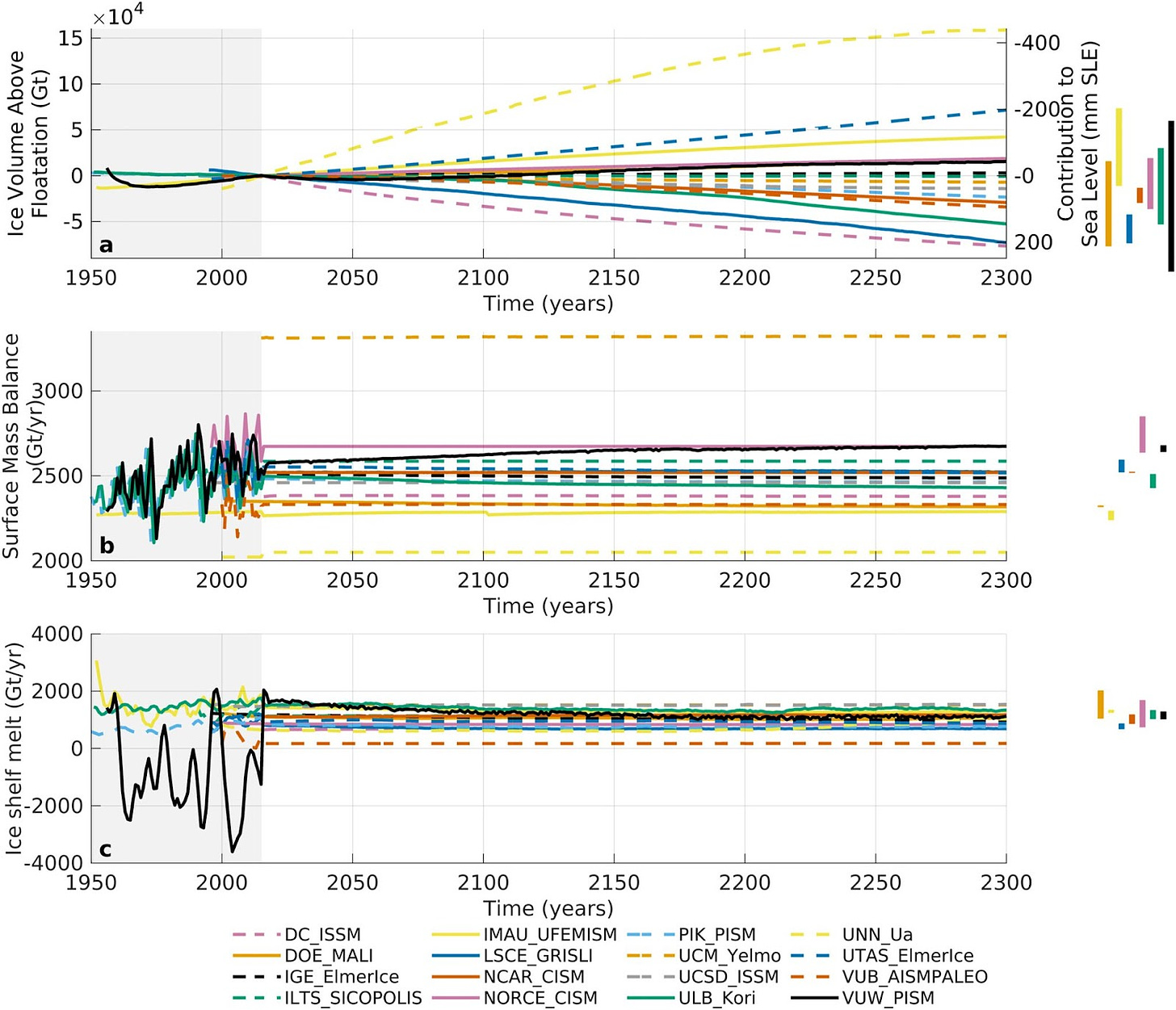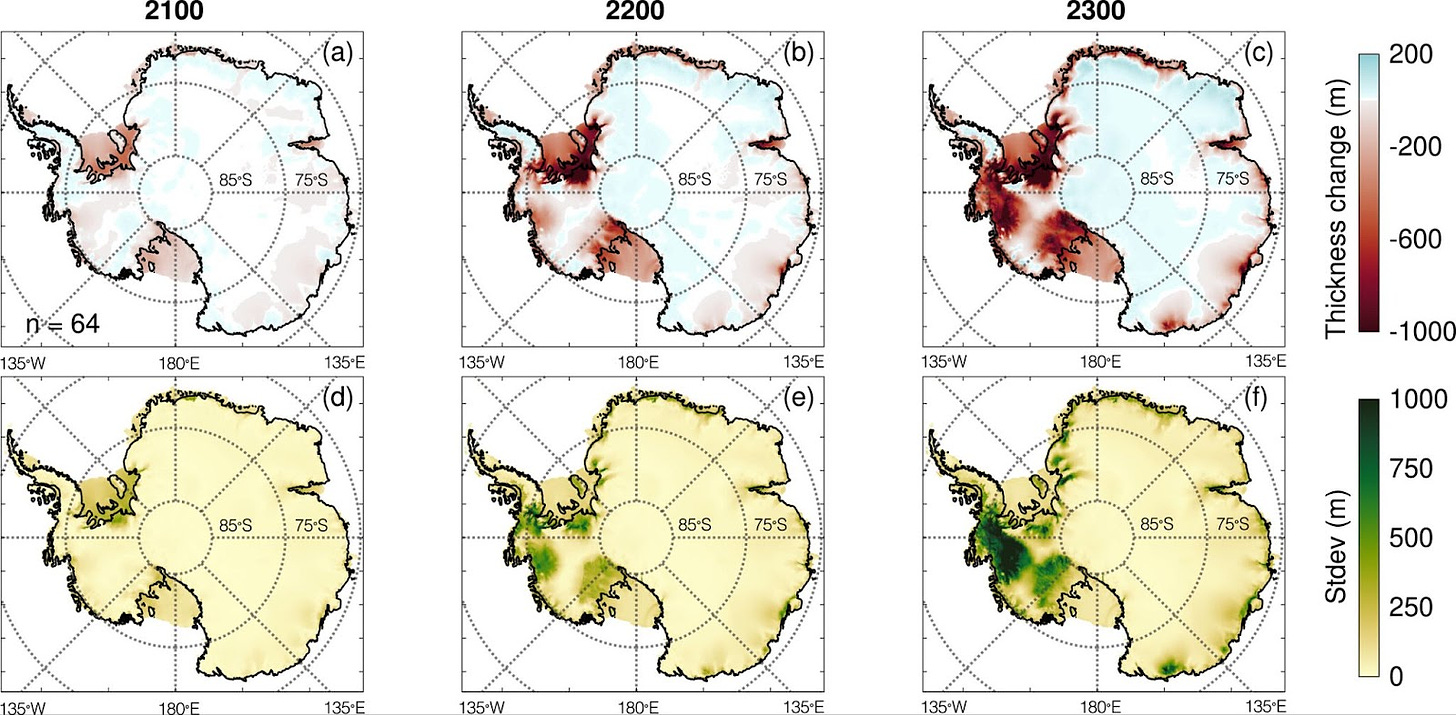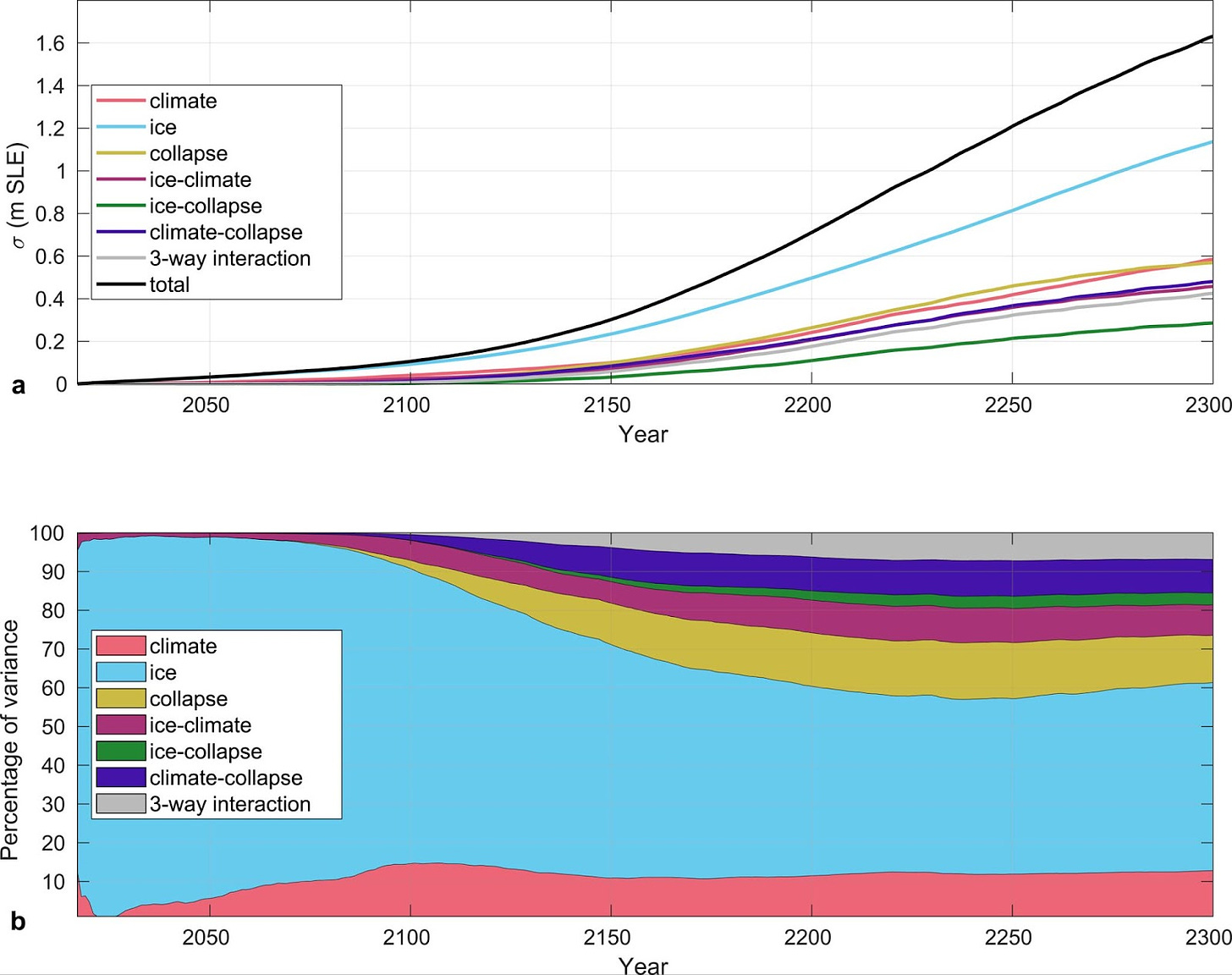Last Week in Collapse: September 8-14, 2024
South America burns. Sudan’s soldiers get more weapons. Debt grows, and crops die.
Last Week in Collapse: September 8-14, 2024
This is Last Week in Collapse, a weekly newsletter compiling some of the most important, timely, useful, soul-shattering, ironic, stunning, exhausting, or otherwise must-see/can’t-look-away moments in Collapse.
This is the 142nd newsletter. You can find the September 1-7 edition here on Reddit if you missed it last week. Thank you for subscribing to the Substack.
——————————
Global methane concentrations are currently at 800,000+ year highs, and they’re getting worse. A recent study in Environmental Research Letters claims “Global average methane concentrations reached 1931 parts per billion (ppb) in January of 2024….Methane (CH4) is the second most important anthropogenic greenhouse gas after carbon dioxide. It contributed 0.5 °C of warming in the 2010s relative to the late 1800s—two-thirds as much warming as CO.” Methane emissions have risen 20% over the last 20 years, and human activity is responsible for about 2/3rds of total annual methane emissions.
Samoa and Fiji are joining Vanuatu in pushing for “ecocide” to become a crime prosecuted by the International Criminal Court (ICC). Meanwhile, the Sounion oil tanker continues to burn, threatening to spill 1M+ barrels of crude oil into the Red Sea. “This situation is an environmental catastrophe slowly unfolding in front of our eyes,” said one observer.
China is continuing to expand its coal mine operations, reportedly developing mines capable of extracting 1.25+ billion metric tonnes per year. This increase represents about one third of China’s current annual production (4.65+ billion metric tons). China is the world’s largest producer & consumer of coal.
Illegal Amazon miners are escalating operations to meet rising demand of minerals. Mining for gold, cassiterite, and other minerals requires deforesting a plot of land, uprooting soil, and often incidentally contaminating it with mercury. In England, a wet season has yielded a terrible harvest, while a dry season in Spain has yielded a dramatically low quantity of olive oil.
Four people perished in floods in Romania. Athens grapples with the economic & environmental consequences of its suburban wildfires. And Texas is running out of water. And flooding and deforestation in Afghanistan. And Poland’s longest river, the Vistula, hit record lows last week.
A Chilean man was arrested over allegedly sparking a forest fire (in order to be a firefighting hero) in February which killed 137 people. A town in northern Norway set a new September record of 21.5 °C (70.7 °F)—as did Copenhagen. Meanwhile, China finished its hottest summer in 60+ years, and NASA claims that August 2024 was the hottest month on earth since records began in 1880. Reports from Azerbaijan are emerging claiming that the government is cracking down on scientists, journalists, and human rights defenders ahead of the COP29 conference in Baku this November.
A paywalled study’s abstract claims that 70% of the world will experience extreme weather in the next 20 years. “While cleaning the air is critical for health reasons, air pollution has also masked some of the effects of global warming. Now, the necessary cleanup may combine with global warming and give very strong changes in extreme conditions over the coming decades.” As one ecologist recently said, we have already driven off the cliff—we simply haven’t landed yet. Another study suggests that most people grossly underestimate the carbon footprint of the ultra rich.
A study published a few weeks ago in Nature Communications claims that flooding in the eastern Mediterranean is probably going to worsen in the future, as a result of changing sediment distribution patterns and stronger, longer-lasting medicanes—cyclones similar to those found in the tropics. One year later, Libya is rebuilding much of its infrastructure destroyed in the Derna floods.
20+ people were killed by flooding in Morocco & Algeria. Flooding in Uganda slew three. Brazil’s wildfires—and others, like in Bolivia, burning across South America—continue to break records and burn forests. “We never had winter,” said one scientist in São Paulo. And a wildfire is said to have burned 20% Brasilia National Forest just in the last week. Around South America heat records continue being broken, and new night temperature records in Central American places were set. Key West, Florida set a new September nighttime temp: 87 °C (30.5 °C). Post-Yagi flooding in Myanmar killed 33 and displaced 200,000+, while in Vietnam, the Yagi death toll has exceeded 250.
Experts claim that Italy’s Marmolada glacier—the largest in the Dolomites—may be completely melted by 2040. Another Italian glacier retreated 7m in the past year. Researchers determined, evinced in a study in Science, that climate change caused a landslide in Greenland one year ago which created a powerful seiche which, in turn, created seismic waves for 9 days.
Reef sharks are being driven from their habitats by warming seas. Elsewhere, dolphins and whales are washing up onto the shores of Taiwan—researchers say it’s a result of warming sea surface temperatures as well as maritime noise caused by China. A new study suggested that a Mega El Niño caused “the largest extinction of life on planet Earth some 252 million years ago.”
Seoul (pop: 10M), South Korea broke an 89-year heat record last week. A heat wave across South America broke a number of monthly and regional records, even setting a new record for Trinidad & Tobago’s hottest night ever: 29.3 °C (85 °F). Researchers say that extreme heat can cause kidney health issues.
A study in Earth’s Future looked at the next 300 years and concluded that “the difference between how high- and low-emission scenarios contribute to sea-level rise grows sharply after 2100…. Under high-emission scenarios, the Antarctic sea-level contribution is limited to less than 30 cm sea-level equivalent (SLE) by 2100, but increases rapidly thereafter to reach up to 4.4 m SLE by 2300.”
——————————
How hungry would you have to be before eating a potentially toxic yam? In Malawi, that question is being answered, courtesy of a bitter Drought which has cut agricultural yields across much of the country. “In a good year, we usually harvest 21 bags of maize, but this year we harvested absolutely nothing,” said one elderly farmer. “We planted drought-resistant millet, but that too did not yield.” Serious malnutrition is also unfolding in hospitals in Afghanistan, endangering the lives of newborns.
U.S. cases of syphilis have spiked 80% in the last 5 years, and the U.S. now has 70-year high rates of the sexually-transmitted disease. In Paraguay, sexual education is Collapsing. LA County is facing power outages caused by heat waves and wildfires.
Scientists have determined that microbes can be carried in the air more than 2,000 kilometers (1,200 miles) and infect organisms upon arrival. When combined with AMR, epidemiologists believe it may pose yet another threat to humanity. The paywalled study in PNAS has more.
The confirmed human case of bird flu in Missouri on 6 September is setting off more alarms about a potential avian flu emergency—because this patient had no known contact with animals. Meanwhile, 50,000 mpox vaccines arrived in the DRC this week, though local authorities need many more. Another 200,000 arrived in Kinshasa but need to be transported to the east part of the country. Despite the potential for a wider pandemic, many individuals and organizations are still pursuing profit at the expense of preventing a global public health emergency.
Keep reading with a 7-day free trial
Subscribe to Last Week in Collapse to keep reading this post and get 7 days of free access to the full post archives.




